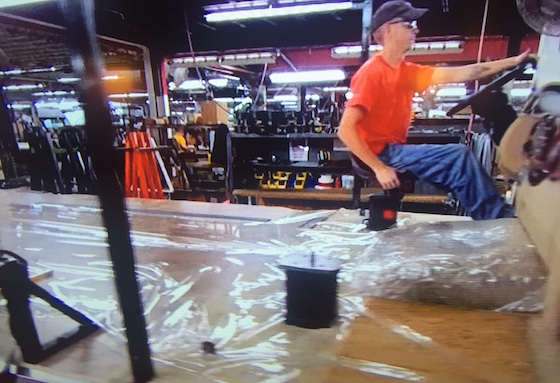Benjamin Franklin once said that “diligence is the mother of good luck”. Of course, the corollary is that “the absence of diligence is the mother of bad luck”. You should never buy an RV park without conducting thorough due diligence to verify that everything regarding the deal is in-line with the law and your expectations. That being said, there are certain items that are outright deal killers. So what are the absolutely worst things that you can find about an RV park in due diligence, that would scuttle the deal immediately?
No operating permit or license
You simply can never buy an RV park that does not have the necessary governmental approvals to operate. You would think that it would be impossible for an RV park to exist that was built illegally, but yet they can be found in every state. If you were to go back in time, you’d find that the original owner basically built the RV park secretly over time, without ever filing for any permits, and nobody at the city ever detected it (or if they did, they got paid off to stay quiet). We have seen 200 unit RV parks without any operating license – there’s one in Dallas on the interstate.
Failed Phase I
Back when the government became concerned with the concept of pollution in the 1970s, they started looking into what was buried in the ground. First they started making gas stations replace their metal tanks with fiberglass ones, and remediate any spillage. But then they moved on into all arenas. Today, the only way that you can be safe from pollution remediation and litigation is to perform a Phase I Environmental Study on the RV park you are looking at buying. 99% of the time they come up clean. But if the RV park is found to be polluted, you must cancel the contract immediately. The cost to remediate pollution can be in the millions, and we’ve never seen an RV park that can afford to be cleaned from environmental contamination. If you think your location will support it, you can always do a Phase II to see what the damage is, but it may be a total waste of time and money. While office buildings are a high enough use of land to allow for expensive clean-up bills, RV parks aren’t.
Floodplain
Floodplain and RV parks don’t go well together. In fact, floodplain and any type of real estate is a bad combination. The very fact that the RV park has a floodplain designation will make it extremely difficult – or impossible – to finance or find a future buyer. But before you drop the deal, take a quick look at what part of the property is affected by flooding. If it’s just the amenities, but not where the RVs are located, then you might be able to handle the occasional flood. But just having the label of floodplain is extremely damaging to the deal.
Lack of accurate past financial records
In the U.S., virtually all banks require at least three years of financial performance in the form of profit and loss statements and balance sheets. If the seller does not have this information, then it is unlikely you can get a loan. While this is not always a deal killer, it is if the seller is not going to carry the financing. The minute you see that the seller has insufficient documentation, you need to say “you realize that you have to carry the financing, right?” and if they say “no” then may as well cancel the contract. The only exception would be cases where the price is so insanely low that the bank will finance even in the absence of records – but that price would have to be really, really low.
Failing private utilities
All humans require water to drink and a place to go to the bathroom. Many RV parks are on well water and septic or packaging plant. If these are not working, and there is no clear path to make them work, then you have to drop the deal. Not only would your business not be able to operate in the absence of utilities, but you would face steep fines and legal action over it. Sometimes, these things simply cannot be fixed, such as areas of the Southwest that have had a drought for so long that there simply is no water for a well to tap into.
Declining market dynamics
Real estate is all about location, and RV parks are no different. To succeed, you have to find an RV park that is strong now, as well as into the future as far as you can see. If the market where the RV park is located suddenly has a significant shift due to new RV parks being built or attractions being closed, then you should probably drop the deal. The last thing you want to do is to be stuck with an RV park that has trouble hitting budgets, has no future, and no exit strategy.
Conclusion
Due diligence in RV parks is key. Some items you discover are minor and can be worked around. But others are deal killers and you should act on those immediately. As with all real estate, you really make your profit on the front end by buying only properties with good fundamentals. Problems should be aggressively avoided.





